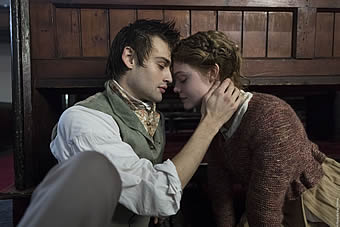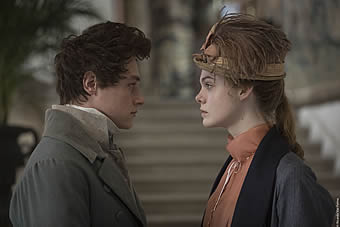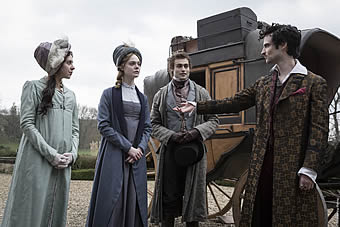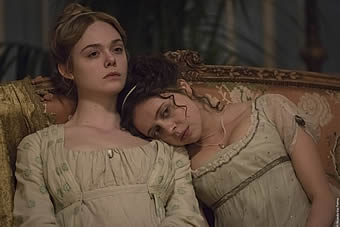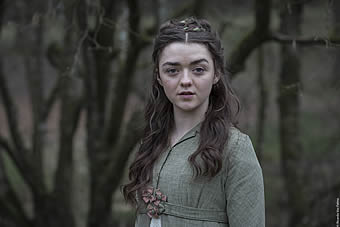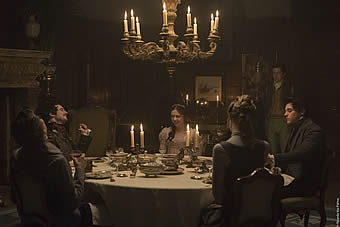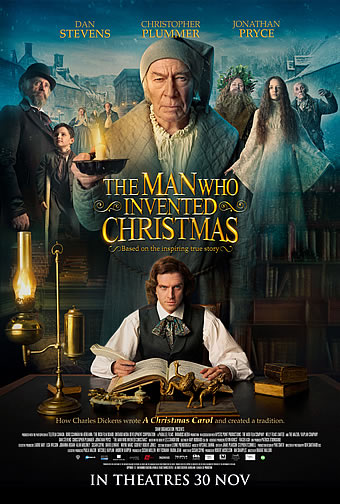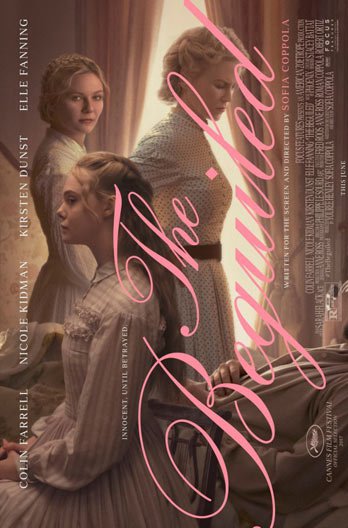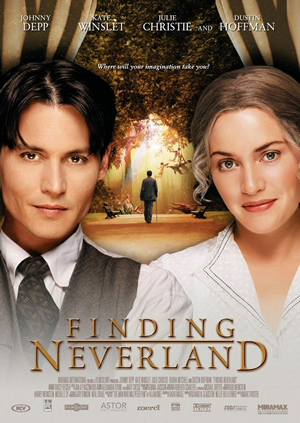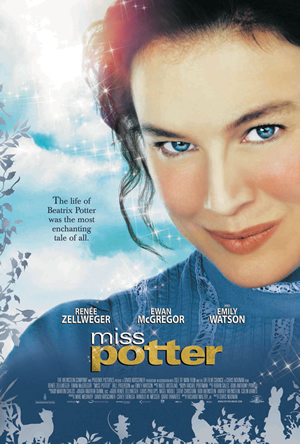MARY SHELLEY (2018)
Genre: Drama/Biography
Director: Haifaa Al-Mansour
Cast: Elle Fanning, Maisie Williams, Douglas Booth, Bel Powley
RunTime: 2 hrs 1 min
Rating: NC-16
Released By: Shaw Organisation
Official Website:
Opening Day: 31 May 2018
Synopsis: Mary Shelley tells the story of Mary Wollstonecraft Godwin (Elle Fanning) - author of one of the world's most famous Gothic novels 'Frankenstein' - and her fiery, tempestuous relationship with renowned romantic poet Percy Bysshe Shelley (Douglas Booth). The pair are two outsiders constrained by polite society but bound together by a natural chemistry and progressive ideas that are beyond the boundaries of their age and time. Mary and Percy declare their love for each other and much to her family's horror, they run away together, joined by Mary's half-sister Claire. In the midst of growing tension within their relationship during their stay at Lord Byron's house at Lake Geneva, the idea of Frankenstein is conceived when a challenge is put to all houseguests to write a ghost story. An incredible character is created, which will loom large in popular culture for centuries to come, but society at the time puts little value in female authors. At the tender age of 18, Mary is forced to challenge these preconceptions, to protect her work and to forge her own identity.
Movie Review:
Chances are if you’re curious about ‘Mary Shelley’, it’s because you know her as the early-19th century author of one of literature’s most defining and bone-chilling horror novels ‘Frankenstein; or, the Modern Prometheus’. Oh yes, that’s the same Frankenstein who would go on to become a cultural icon of horror films for over a century.
It therefore comes as no surprise that this biopic of her from acclaimed female Saudi director Haifaa al-Mansour would focus on the early years of her life leading up to her creation of one of the most indelible fictional creatures of all time, most notably her scandalous romance with the dashing but married young poet Percy Bysshe Shelley. As al-Mansour and screenwriter Emma Jensen would have you believe, it was as much her upbringing as it was her relationship upheavals that inspired the themes of abandonment, loneliness and disgust that were central to the book.
But however true that may be, it needed to be told with a more definitive spark of life than this present monotonous treatment. The opening is promising: we first meet young Mary (Elle Fanning) dawdling by her long-dead mother’s gravesite, her lone place of respite and calm given how she has to contend with a mean stepmother (Joanne Froggart) at home. Like her fiercely independent mother, Mary eschews the conventions of society, preferring to indulge in reading and writing horror stories than literary novels and philosophical thought, and it is hardly any wonder why her own father – philosopher, writer and publisher William Godwin (Stephen Dillane) – disapproves.
Mary sees an ostensible chance at a better life in Percy (Douglas Booth), whom she meets after her father sends her away to a family friend’s home in Scotland. His progressive, romantic declarations of artistic and sexual freedom have her smitten, and despite learning subsequently that he has an estranged wife and child, Mary decides to run away with him, destroying her father and their relationship. Worse still, Mary’s stepsister Claire (Bel Powley) decides to run along for the adventure, caught in the same swirls of adolescent naivety. All this takes place within the first act, which is still fairly interesting and engaging.
Alas the same cannot be said of Mary, Percy and Claire’s subsequent travails, which the film seems to walk through as if it were checking off items from a list: Percy’s precarious financial status, leading the threesome to be frequently on the run from creditors; Percy’s affair with Claire, despite Mary being pregnant with his child; Mary losing the baby shortly after birth, precipitating further depression and resentment towards Percy; and last but not least, their encounter with the appalling Lord Byron (Tom Sturridge). It is at Lord Bryon’s estate however that Mary would give birth to Frankenstein’s monster, taking up his rainy-night challenge after one of their marathon drinking sessions – and besides Mary’s, that same session would also yield the acclaimed ‘The Vampyre’ from another house guest, Dr John Polidori (Ben Hardy).
There is clearly a lot of fantastic material here for an emotionally gripping film, but al-Mansour opts instead for a safe period piece that is content to bask in the rich details of its period setting. It surely is pretty to look at, but much as you’d admire the meticulous cover of its 18th-century setting, you can’t help but feel how much of a missed opportunity on the part of the filmmakers to paint a more compelling account of a radical woman living a radical life. Not only does it feel like they have reduced her life into that of a typical romantic drama, the plotting seems dull and lethargic, so much so that the film never manages to assemble a satisfying arc for its more promising narrative threads.
That it does have a sparkling performance by Fanning makes it even more of a pity, and indeed you can see onscreen how committed the talented actress is to the role. But the film lets her down, and her co-stars aren’t exactly the best complements, including a capably dashing but otherwise flat Booth and a somewhat clueless Powley. Sturridge steals the scene with his exaggerated portrayal of Lord Byron akin to a debauched ‘70s rock star, and Dillane brings emotional pathos as Mary’s father, but they are not enough to paper over the film’s obvious and glaring flaws.
It’s a cardinal sin for a biopic to be boring, because that either means there wasn’t a story to be told in the first place (which isn’t true in Mary Shelley’s case) or that it’s not done justice to its subject at all. The latter is certainly the reason why ‘Mary Shelley’ fails to satisfy on many levels, perhaps most significantly in diminishing a complex and unconventional woman who was celebrated and controversial at the same time. It may sound clichéd, but this biopic is very much in need of a jolt itself to bring it to life.
Movie Rating:



(The 18th-century period setting impresses, but this staid treatment of what is supposed to be a radical and unconventional subject is otherwise a lifeless disappointment)
Review by Gabriel Chong
You might also like:
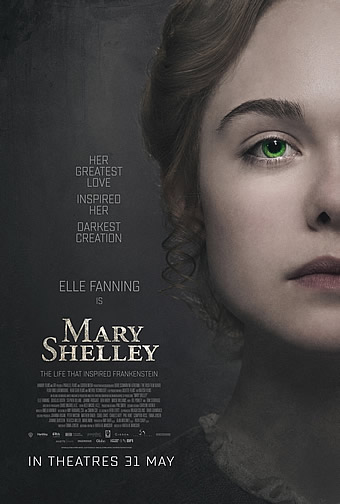
Movie Stills
